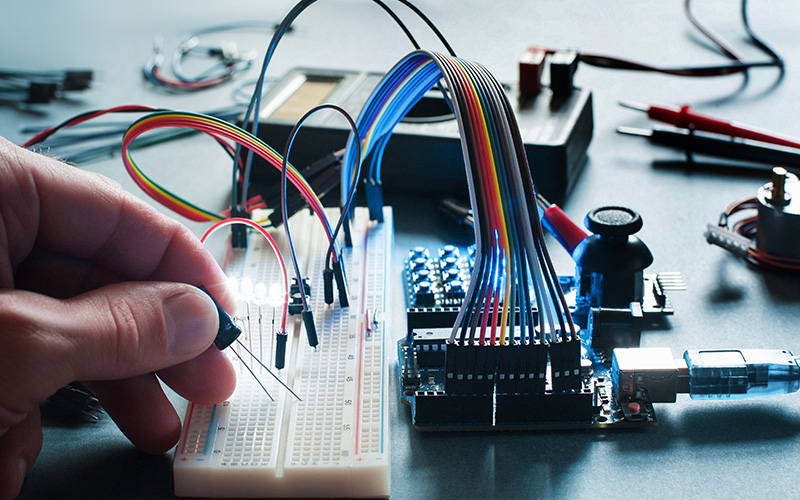Electronics engineering is a dynamic and ever-evolving field that plays a crucial role in shaping modern technology. For university students eyeing a career in this industry, understanding what it entails and what is required to succeed is key. This article explores the role of an electronics engineer, the skills needed, the various specialisations within the field, and factors to consider for those pursuing this challenging yet rewarding career path.
The role of an electronics engineer
Electronics engineers are instrumental in designing, developing, and testing electronic equipment and systems. They work on a variety of technologies ranging from portable music players to global positioning systems (GPS). The role involves not just technical expertise but also creativity and innovation, as engineers must constantly find new ways to improve existing technologies.
Skills needed to become an electronics engineer
- Technical proficiency: A strong foundation in mathematics and physics is essential, along with skills in circuit design, and understanding of microprocessors and digital electronics.
- Problem-solving ability: Engineers must be adept at identifying problems and devising efficient solutions, often requiring innovative thinking.
- Communication skills: The ability to clearly articulate ideas and collaborate with others is crucial, as engineers often work in teams.
Various fields of electronics engineering
Electronics engineering encompasses a range of specialisations, each with its unique focus.
- Telecommunications: Engineers in this field work on the infrastructure necessary for communications systems, like mobile phones and the Internet.
- Robotics: This area involves designing and building robots, often incorporating artificial intelligence.
- Consumer electronics: This field focuses on everyday electronic devices, such as smartphones and home appliances.
- Control systems: This specialisation involves designing and managing devices or systems that control machines and processes. Engineers in this field work on systems ranging from simple household washing machines to complex flight control systems in aircraft.
- Instrumentation engineering: Instrumentation engineers focus on the design, configuration, and maintenance of instruments and systems that are used to measure and control physical quantities like pressure, flow, and temperature. Their work is crucial in industries such as manufacturing, where precise measurement and control are essential for operational efficiency.
Important factors for university students
For students considering a career in electronics engineering, several factors are crucial:
- Course selection: Opting for courses that offer a mix of theoretical knowledge and practical experience is beneficial.
- Internships and work experience: Gaining hands-on experience through internships is invaluable, providing a glimpse into the real-world applications of their studies.
- Keeping abreast of technological advancements: The field of electronics engineering is constantly advancing, so staying up-to-date with the latest developments is essential.
Conclusion
Electronics engineering offers a plethora of opportunities for those with a passion for technology and innovation. By developing a strong technical foundation, honing problem-solving skills, and gaining practical experience, aspiring electronics engineers can prepare themselves for a successful career in this exciting field.




